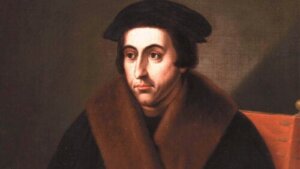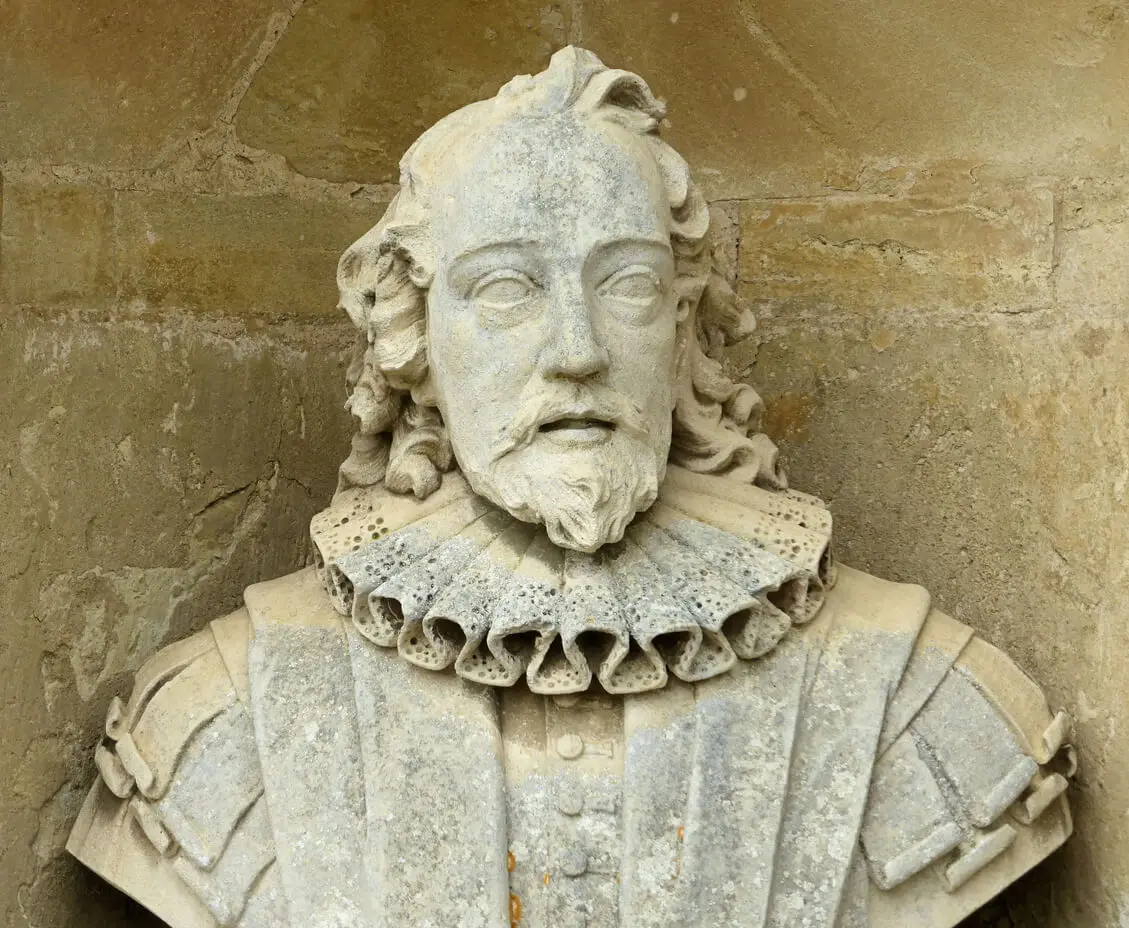Juan Luis Vives: A Spanish Philosopher Who Wanted to Help the Poor


Written and verified by the philosopher Maria Alejandra Morgado Cusati
Juan Luis Vives is one of the most important figures of the European Renaissance. He was a philosopher and humanist educator who was characterized by his criticism of authority, his concern for people, and his return to classical texts. He was also a precursor of the sciences in that he supported observation, experience, and the critical spirit as methods of knowledge.
His humanist contributions to the history of thought, education, and social service allow him to be considered the father of anthropology, social work, and modern psychology. Let’s take a look at what his work consisted of.
A brief biography of Juan Luis Vives
Juan Luis Vives was born in Valencia (Spain) on March 6, 1492. He was the son of Luis Vives Valeriola and Blanquina March Almenara. He grew up in a wealthy Jewish family that had to convert to Christianity to avoid major problems with the church at the height of Catholic domination and inquisitorial practices in Spain.
In his youth, Vives attended the Estudi General in his hometown, but in 1509 he traveled to Paris to continue his studies at the University of the Sorbonne, far from the reach of the Inquisition. There, he was surrounded by many students from the Crown of Aragon and was able to attend classes with various professors from Spain.
In 1512 he received his doctorate degree and moved to Bruges (Belgium), where he met his future wife, Marguerite Valldaura, whom he married in 1524.
From 1523 to 1528, Vives divided his time between England, which he visited on six occasions, and Bruges. In England, he attended the court of Henry VIII and Catherine of Aragon and was tutor to their daughter, Mary. He also held a professorship at Corpus Christi College (Oxford). He associated with English humanists, including Thomas More.
In 1528 he lost the favor of Henry VIII when he sided with his compatriot, Catherine of Aragon, in the matter of divorce. He was placed under house arrest for a time before being allowed to return to Bruges.
The last 12 years of his life were the most productive. During this period he published several of the works for which he is best known today.
He died on May 6, 1540, at his residence in Bruges, from a gallstone. His remains rest in the church of St. Donacian.

We think you may find this article interesting, too: Important Teachings of Confucius Regarding Psychology and Philosophy
The contributions of Juan Luis Vives
Juan Luis Vives was a tolerant Catholic and a humanist who was concerned about human reality, human beings, and our history. This great thinker was able to identify the contradictions of the time and the gap that the scholastic method of teaching that dominated in European universities represented.
From there, he promoted the transformation for a better reality, anticipating the ideas of future thinkers. Among his contributions, we find the following.
The reform of European education
One of the most significant contributions of Juan Luis Vives was the questioning of the obsolete teaching methods applied in schools and universities, which were governed by the scholastic method.
Therefore, he was dedicated to renewing European education, replacing medieval texts with ones more adapted to the vocabulary of the time. He also brought Latin closer to his students and proposed the study of Aristotle’s works in their original language.
Social assistance to the neediest
In his work Tratado del socorro de los pobres, Vives analyzes and systematizes, for the first time in history, a model of help for the poor, reflecting how it should be done. Hence, he’s considered the first person to put into practice an “organized service of social assistance.”
Juan Luis Vives advocated putting aside selfishness and individualism and putting personal gifts at the service of a community. According to the author, the common good could never be achieved if the group was driven by sectarian, obsolete, demagogic ideas, or mired in criteria led by powerful corrupt people that, in one way or another, he had helped to combat.
Innovation in the field of psychology
On the other hand, some authors consider him the father of modern psychology, in that he proposed, for the first time, a catalog of psychological singularities that would not be completed until the 20th century.
For example, although he closely followed Aristotle’s ideas (on the immortality of the soul), he affirmed that the vital processes of the soul, as well as the theory of affection, are the domain of psychology. He also studied the processes of memory and the association of ideas.
He proposed an empirical method
Vives was also ahead of Francis Bacon’s theories when he proposed the empirical method for the study of natural phenomena. In this sense, he postulated that external observation and experience could be applied to the study of nature, medicine, or the incipient science of the time.
In fact, he defended that this method was also extensible to the knowledge of the human soul.

Like this article? You may also like reading: Philosophy of Mind: The Relationship Between the Mind and the Brain
Juan Luis Vives’ most important works
Vives was a prolific writer who created some 60 treatises on political, religious, ethical, and pedagogical topics. Among his most significant texts are the following:
- In pseudo dialecticus (1519), a work in which he argued against the teaching method of the scholastics, proposing an educational system adapted to the student.
- Introductio ad sapientiam (1526), which is considered his most important work on pedagogy.
- De subventione pauperum (1526). In this work, he dealt with aid to the poor, leaving to the institutions the responsibility of caring for beggars and giving work back to the vagabonds.
- De disciplinis libri XX(1531). In this work, he argued that the purpose of education is the welfare of man. He supported the thesis of education as a function of the practical needs of the individual – that is to say, that any knowledge acquired should have a practical purpose.
- De anima et vita (1538). This is a complex and mature work in which he deals with psychology.
Juan Luis Vives: A humanist
Juan Luis Vives is known for his developed and extensive humanistic production. His knowledge and practical sense made notable contributions to philosophy, anthropology, theology, and psychology. In addition, he was a passionate promoter of peace and unity among peoples and of the State’s assistance to the neediest.
All cited sources were thoroughly reviewed by our team to ensure their quality, reliability, currency, and validity. The bibliography of this article was considered reliable and of academic or scientific accuracy.
- Calero F, Coronel M. La grandeza de Juan Luis Vives. eHumanista: Journal of Iberian Studies [Internet]. 2014 [consultado 31 mayo de 2022]; 26: 429-453. Disponible en: https://dialnet.unirioja.es/servlet/articulo?codigo=5562713
- Gómez A. La sabiduría en la obra de Juan Luis Vives. Anuario de Historia de la Iglesia [Internet]. 2001 [consultado 31 mayo de 2022]; 10: 504-509. Disponible en: https://www.redalyc.org/pdf/355/35501045.pdf
This text is provided for informational purposes only and does not replace consultation with a professional. If in doubt, consult your specialist.








